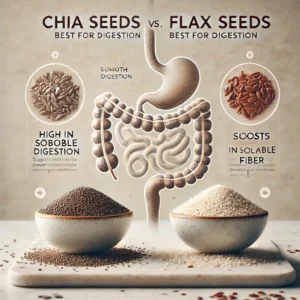Aloe vera is commonly known for its use in soothing skin irritations, but in recent years, its potential benefits for digestive health have garnered attention. From easing symptoms of acid reflux to reducing inflammation in the gut, many claim that aloe vera can support a healthy digestive system. But does it really work? In this article, we’ll explore the digestive benefits of aloe vera and whether it’s a good option for gut health.
1. Aloe Vera and Its Role in Digestive Health
Aloe vera is rich in compounds that may benefit the digestive system, including anti-inflammatory and antioxidant properties. The plant contains bioactive compounds like aloesin, which may help alleviate gastrointestinal irritation. Aloe vera has also been suggested as a natural remedy for digestive disorders such as irritable bowel syndrome (IBS) and acid reflux.
One of the most common ways to consume aloe vera for digestion is in aloe vera juice, which is derived from the plant’s inner leaf. This juice is believed to help soothe the lining of the stomach and intestines, promoting smoother digestion.
2. Key Benefits of Aloe Vera for Digestion
Aloe vera offers several potential benefits for digestive health:
- Soothing Inflammation: Aloe vera is often praised for its anti-inflammatory effects, which may help reduce irritation in the gut and stomach lining. This can be beneficial for those dealing with acid reflux or other inflammatory digestive issues.
- Gut Healing Properties: Aloe vera may help promote the healing of the gut lining, which can be beneficial for individuals with leaky gut or IBS. Studies have shown that aloe can reduce symptoms like bloating, pain, and discomfort associated with IBS.
- Relief from Constipation: Aloe vera contains compounds that can have a laxative effect, helping with occasional constipation. However, it’s important to use it in moderation, as excessive consumption can lead to more severe laxative effects.
3. Aloe Vera for Acid Reflux and IBS
One of the most common uses of aloe vera for digestive health is as a natural remedy for acid reflux. Aloe vera juice is thought to help by coating the esophagus and soothing the irritation caused by stomach acid. It may also help neutralize the acid, providing relief from heartburn and other symptoms of gastroesophageal reflux disease (GERD).
For those with irritable bowel syndrome (IBS), aloe vera is often used to help manage symptoms like cramping, diarrhea, and bloating. Some studies suggest that aloe vera’s anti-inflammatory and soothing properties may help reduce the severity of IBS symptoms over time.
In my personal experience, I found that drinking aloe vera juice in small quantities helped alleviate some of my acid reflux and reduced the feeling of bloating after heavy meals. However, I had to be mindful of how much I consumed, as too much aloe can have a laxative effect.
4. How to Use Aloe Vera for Digestive Health
If you’re interested in trying aloe vera to support your digestion, here are some tips on how to incorporate it into your routine:
- Aloe Vera Juice: Start by drinking a small amount of aloe vera juice (about 1/4 cup) daily, preferably on an empty stomach in the morning. Be sure to look for a decolorized, purified aloe vera juice to avoid any potential side effects from anthraquinones, compounds that can act as strong laxatives.
- Consistency is Key: Like with many natural remedies, consistency is important. Incorporating aloe vera juice regularly can help you achieve better results over time.
- Monitor Your Intake: While aloe vera can help with digestive issues, too much can lead to unpleasant side effects, such as diarrhea or cramping. Start slow and consult a healthcare professional if you’re unsure about the right amount for you.
5. My Personal Experience: Aloe Vera for Digestive Health
A few years ago, I began using aloe vera as a natural remedy to help with my digestive health. After hearing about its anti-inflammatory properties, I decided to incorporate aloe vera juice into my routine. I started drinking a small glass of the juice each morning before breakfast.
While the changes weren’t immediate, I noticed a gradual improvement in my digestive issues. My acid reflux became less frequent, and I felt less bloated after meals, especially after heavier dishes. Over time, I found that aloe vera helped me maintain a more balanced digestive system. However, I learned that it’s important to avoid overconsumption, as aloe can have a laxative effect if taken in large amounts.
Conclusion: Is Aloe Vera Good for Digestion?
Overall, aloe vera can be a useful natural remedy for promoting digestive health, thanks to its anti-inflammatory and soothing properties. From reducing symptoms of acid reflux to helping manage IBS, aloe vera may offer a range of benefits for those looking for a natural way to support their gut health. However, it’s important to use it in moderation and monitor your body’s response, as overuse can lead to unwanted side effects. If you’re looking to try aloe vera, start with a small amount of aloe vera juice and be consistent to see the best results.





